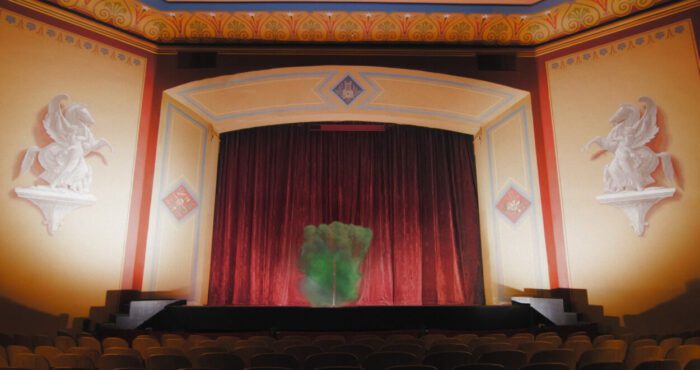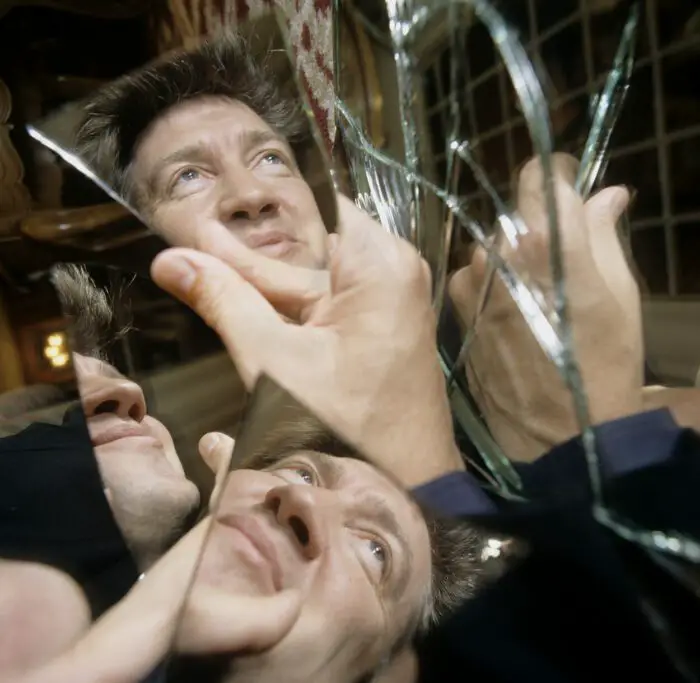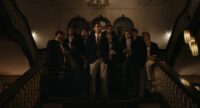Lynch/Oz, the latest documentary from filmmaker Alexandre O. Phillipe (‘Memory: The Origins of Alien”‘, ‘Leap of Faith: William Friedkin on “The Exorcist”‘) is an intriguing proposition: it takes the well-known love that David Lynch (Eraserhead, Mulholland Drive) has for that totemic, fantastical slice of American cinema, The Wizard of Oz (Victor Fleming, 1939) and examines the relationship between the two in a loose, exploratory way, taking joy in not only finding links between Lynch and Oz but also in new ideas about what both film and filmmaker say about America, their place in American culture and what both have to say about art itself. It’s less a sustained argument than a series of dialogues following the train of their own thought as they move, but it’s still a heady experience all the same.
It must be said that Lynch/Oz is a sheer pleasure to look at—how could it not be? Even after all the innovations in lighting, colour grading and saturation, and special effects that have emerged since 1939, The Wizard of Oz still looks beautiful, almost hallucinogenic, and goes to show what can be achieved still without CGI and all the bells and whistles—a valuable lesson to new young filmmakers with a taste for the fantastical, no doubt. Add Lynch into the mix and it’s a feast for the senses. The vivid primary colours of Lynch’s blue and red curtains and chevron floors mix astonishingly well with clips from Oz, as if Lynch’s work is part of the same continuum, are indeed new colours added to widen Oz’s paint palette.
Lynch/Oz supports this wonderful celebration of colour with a wide range of clips from different moments in cinema, not all American either, as ways of supporting the ideas and links between Lynch, Oz and the wider American culture that the film explores. Lynch/Oz is playful with its colours and imagery too. Freshly-filmed introduction and conclusion pieces to the documentary nod to the green curtains of the titular Wizard and to Lynch’s otherworldly fabric portals as well as the character of The Magician from Mulholland Drive, recalling how the Wizard was as much an illusion as whatever is presented in Club Silencio

The film is divided into six parts, each part being a video essay from a different filmmaker or critic presenting their view on the Lynch/Oz relationship and the wider implications and relationships involved. Alexandre O. Phillipe has brought together a sterling team of analysts; film critic Amy Nicholson (Unspooled podcast, Tom Cruise: Anatomy of an Actor); Rodney Ascher (Room 237, A Glitch in the Matrix); John Waters (Pink Flamingoes, Hairspray), Karyn Kusama (Girlfight, Jennifer’s Body), Justin Benson and Aaron Moorhead (The Endless, Something in the Dirt) and David Lowery (A Ghost Story, The Green Knight).
Not only is this a cast of creative, interesting people but thank goodness for us, they also have interesting things to say. Each person has a different take or focus: John Waters reminisces about the impact of The Wizard of Oz on his life and career and looks back warmly on his meetings with Lynch; Karyn Kasuma focuses specifically on Mulholland Drive, perhaps the most Oz-ian of all Lynch’s films (the blatant referencing in Wild at Heart aside) and sees strong parallels between the two in what is perhaps Lynch/Oz’s strongest segment.
One common consensus that does seem to emerge, however, is that The Wizard of Oz is in some respects an example of quintessential American cinema, the source code from which everything else springs. There are links made to the likes of Beverly Hills Cop and Back to the Future, and while these may be contentious examples on some levels, a convincing argument is made in regards to Oz being a primary text or cinematic archetype from which a lot of American films model it into their own image or use it as a base from which to build their own takes on America from.
If this is correct (and I can imagine the likes of Tarantino and Scorsese arguing for the likes of The Searchers as the American Cinematic Archetype), then it would suggest that it is not only Lynch who is fascinated and indebted to The Wizard of Oz but a whole country’s cinema—it’s just Lynch is more conscious of it. It’s an argument for another article but it’s certainly given me food for thought coming out of the film and on that basis, Lynch/Oz is a success.

If there is one criticism I have of Lynch/Oz, it’s that, much like Room 237 (whose maker appears here, ironically enough), the film takes a more discursive, gently exploratory approach rather than making a sustained argument. As such, there are lots of ideas around Lynch and Oz but these are often used as launching pads for the conversation to veer over into other films and the bigger story at hand: the relationship of these films to American culture and how they represent American life. That is fascinating in itself and makes Lynch/Oz a rewarding, thought-provoking watch, but sometimes I couldn’t help feeling I would have liked a more worked-out idea that dug deeper into the relationship between Lynch and Oz and presented a resemblance of a definite conclusion.
If you come to Lynch/Oz not expecting the kind of sustained argument I was expecting (and that’s most likely on me for coming in with expectations), and instead accept the film on its terms, presenting a series of little essays and meditations on Lynch and Oz that spin out into bigger ideas and wider connections, then you’re going to be in for a treat. There’s no place like home? There’s no place like Oz.
Lynch/Oz opened at the Music Box Theatre in Chicago on June 9th. It is also available to purchase on DVD (and on Blu-Ray in the UK). UK viewers can also purchase the film to stream from Amazon Prime.



